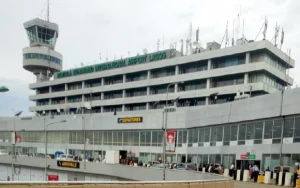
By David Akinmola
The Federal Government is facing a major funding crisis following the sudden withdrawal of the Nigerian National Petroleum Company Limited (NNPCL) from the Presidential Infrastructure Development Fund (PIDF) road funding scheme, a decision that leaves a gaping ₦3 trillion shortfall in critical infrastructure financing.
The move, confirmed by senior government officials and industry insiders, threatens to stall ongoing and planned rehabilitation of key highways across the country, including the Lagos-Badagry Expressway, Abuja-Kano Road, East-West Road, and other strategic arteries vital to economic activity and regional connectivity.
The NNPCL had previously committed to funding road projects under the tax credit scheme introduced by the Muhammadu Buhari administration in 2019, through Executive Order 007. Under the arrangement, the national oil company and other large corporations could fund public infrastructure projects in exchange for tax rebates. The oil giant had emerged as the dominant financier in the scheme, pledging over ₦600 billion to dozens of federal roads, mostly in oil-producing states and economically strategic corridors.
However, sources familiar with recent developments disclosed that NNPCL has now stepped back from new disbursements, citing its constrained liquidity position, ongoing transformation into a limited liability company, and mounting internal obligations. “The company is under financial pressure and is no longer willing to bankroll road projects at the scale it once did,” said a top official at the Federal Ministry of Works.
The Ministry of Finance and Budget Office are reportedly in emergency talks with the Debt Management Office (DMO) and potential private sector partners to find alternative funding options to bridge the widening infrastructure gap.
Minister of Works, Senator David Umahi, who has been vocal about the critical need for sustained funding to complete strategic highways, is expected to brief the public in the coming days on the government’s fallback plan. Meanwhile, contractors handling the affected road projects have expressed concern over delayed payments and potential suspension of works if funding is not quickly secured.
For road users and businesses who had hoped the tax credit scheme would accelerate long-overdue rehabilitation and expansion of Nigeria’s dilapidated road network, the NNPCL’s exit is a blow to expectations. “The progress we’ve seen on some roads was directly because NNPCL was involved. If they pull out, we could go back to the era of abandoned projects,” said Chukwudi Amadi, a logistics operator in Port Harcourt.
The road tax credit initiative had been hailed as a model for public-private collaboration in infrastructure delivery, especially at a time when public finances remain under pressure due to debt servicing obligations and declining oil revenue. With over 30,000 kilometers of federal roads in need of urgent attention, experts warn that any disruption to the scheme could trigger wider economic repercussions.
Analysts also point to the broader implications for Nigeria’s infrastructure ambitions under the renewed hope agenda of President Bola Tinubu, whose administration has committed to delivering world-class roads, railways, and bridges as part of its $1 trillion GDP vision. With the exit of NNPCL, the burden now shifts to the federal purse and the government’s ability to attract fresh private capital into infrastructure.
“We are in a tough spot,” said an infrastructure consultant who spoke under condition of anonymity. “Without NNPCL’s backing, the FG must rethink how it structures these partnerships to appeal to investors—transparency, guarantees, and legal backing will be key.”
As the government scrambles to raise the ₦3 trillion needed to keep roads under construction and meet new obligations, many Nigerians are bracing for further delays and deteriorating road conditions in the absence of a quick funding solution.






